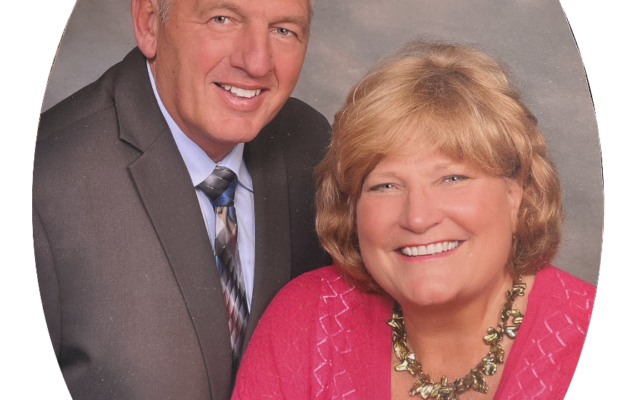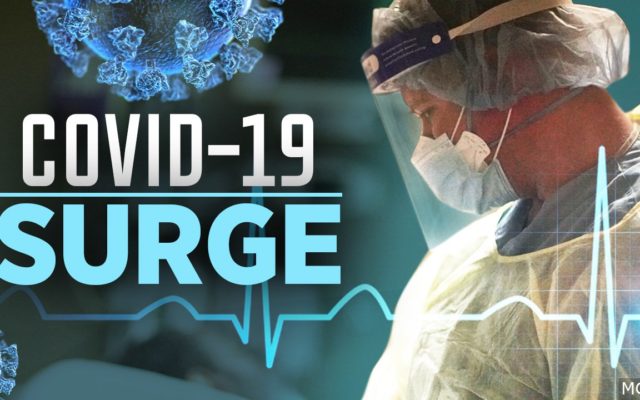
Early Bird Pricing Ends April 17th for the Color Classic 5k & Fun Run - Register Now
Lady Anne brings smile's to patients' faces through Oaklawn Pet Therapy
MARSHALL – Call it love at first sight. It’s often that way when patients meet Lady Anne, a vivacious 7-year-old Cavalier King Charles spaniel who delivers smiles and comfort through Oaklawn Pet Therapy.
“We visit patients in the psychiatric area in a large comfortable room, but we spend most of our time in individual patient rooms, specifically the Birth Center,” said Lady Anne’s handler, Leta Morris of Marshall.
Morris and her lively canine friend are becoming familiar faces around Oaklawn through the new pet-therapy program, demonstrating that animals have a definite healing effect on humans.
“Nursing homes, behavioral health institutions, prisons and hospitals are increasingly relying on animals to help individuals who’ve experienced a variety of disabilities, including loss of sight and hearing, and to help those who experience loneliness, depression or stressful changes from their normal lifestyle,” said Ginger Williams, Oaklawn’s President and CEO.
“There’s little doubt that friendly animals help people reduce their stress levels, which in turn has a positive impact on the healing process,” Williams said. “We’re very happy we’ve been able to provide this wonderful addition to the healing experience for our patients and staff alike.”
Lady Anne’s animal magnetism is so profound, it led to a love-at-first-sight experience for Morris as well.
Even through a photo, the attraction was so strong that Morris traveled to Missouri to meet Lady Anne’s breeder and inspect Lady Anne.
“She just jumped into my arms,” Morris said.
Morris has been a Canine Good Citizen Evaluator for the Raleigh, N.C.-based American Kennel Club since 2011, and is also an evaluator for Baltimore-based Therapy Pets Unlimited. As such, she has the skills to verify whether a dog can be considered properly trained and conditioned to act in a well-mannered fashion in public places and among other dogs.
“At Oaklawn, we go to the individual patient rooms and ask if they would like a visit,” Morris said. “There are a few we do not visit because of medical reasons, as directed by the hospital.”
Researchers in the pet-therapy field say psychiatric patients who work with such animals can also be helped to develop more positive relationships with other humans, Williams said.
“The American Humane Association upholds the conviction that therapeutic animals can and should be a significant part of mainstream health care, in the ongoing effort by medical organizations nationwide to enhance patients’ well-being,” Williams said, adding that Oaklawn developed its program through discussions with its Voice of the Customer committee, which focuses on involving community members in hospital operations.
Because contact with animals can raise concerns about safety and sanitation, responsible health-care organizations impose cautious rules that typically remove any worries and enhance the general sense of well-being. At Oaklawn, Lady Anne’s visits come under the supervision of Sarah LaSalle, the organization’s Infection Preventionist.
In fact, the Centers for Disease Control and Prevention have never received a report of infection from animal-assisted therapy, according to officials for the Mayo Foundation for Medical Education and Research.
Morris has also worked with a German shepherd named Calibur, frequently visiting medical sites in Battle Creek and Grand Rapids. Calibur, a former search-and-rescue dog, continues to be a service dog assigned to Morris’ husband Floyd, a Vietnam-era veteran formerly employed by CSX Rail Road in Grand Rapids.
Morris and her husband moved to Marshall in early 2015 after she retired as an operations supervisor from Grand River Bank in Grandville.
The positive impact of therapy animals is well supported by science, according to the Elkton, Md.-based nonprofit organization Paws for People. Contact with therapy animals helps to lower blood pressure, improve cardiovascular health and release calming endorphins in the body, according to the group.
Lady Anne’s charm has been known to break through to patients who dislike dogs.
“My husband and I have seen many miracles,” Morris said. “Once there was a gentleman in a wheelchair and Calibur went up to him. The man started petting and talking to him. We heard all these whispers and talking. That gentleman hadn’t talked in many months, and we found out that he had never spoken a word to people – but he had spoken to Calibur.”
Morris also recalled an incident when Lady Anne was brought to visit a patient who refused any company and preferred covering his head with blankets.
“I would say, ‘Lady Anne is here to see you,’ and he would throw off the covers,” Morris said.
And what’s in it for Lady Anne?
“She loves it,” Morris said. “And I enjoy talking to the people. I enjoy seeing the smiles and the joy that she brings to them. It’s a beautiful experience.
“You just see them smile. It uplifts their spirits,” Morris said. “They can just love on her and relieve their stress. The nurses and staff really seem to enjoy the visits as well. So it’s a win-win situation for all of us!”

